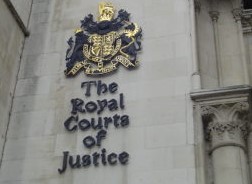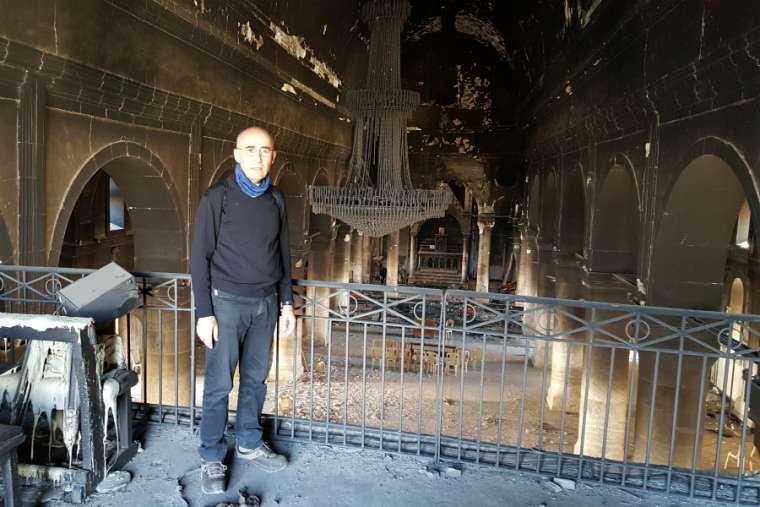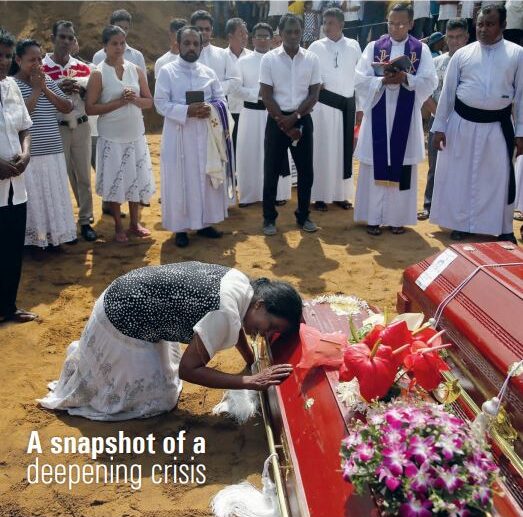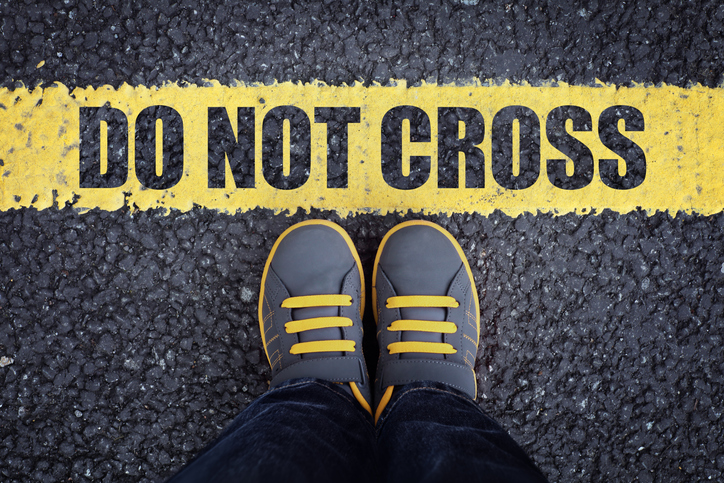
One abortion on average is carried out every day at one of the country’s leading maternity hospitals in 2019, the first full year of operation of the country’s new abortion law.
Each abortion would have occurred at the ninth week or later, as abortions prior to that are initiated at GP surgeries. He admitted that the ‘vast majority’ of abortions are facilitated by GPs via the abortion pill.
Official figures of the total number of abortions carried out in 2019 have not yet been released.
Dr Malone also revealed that one of the main challenges at the Rotunda was when pill-induced abortions failed to complete and the women require scans and follow-up treatment in hospital.

A Government Minister has attacked a Catholic parish for explaining Catholic teaching on IVF to other Catholics.
Minister for Health, Simon Harris, was responding to a Catholic parish in Tullamore who posted on social media the Church’s opposition to IVF.
Mr Harris described the comments as “extremely hurtful”.
He continued: “I thought and certainly hoped we had moved to a point as a country that this sort of inappropriate interference in decisions that individuals and couples make about their own lives would be left to them”.

A judge in the UK ruled on Wednesday that it was legal for a leading think tank to fire a worker for arguing publicly that biological males who identify as transgender women are not real women. Harry Potter author, JK Rowling, weighed in on behalf of the sacked worker.
The Centre for Global Development (CGD) fired tax expert Maya Forstater in March 2019 over a series of tweets in which she said that “men cannot change into women.”
She sued the CGD on grounds of discrimination, but in a ruling published Wednesday, employment tribunal Judge James Tayler said Forstater’s view is “not a philosophical belief protected by the Equality Act” and “is not worthy of respect in a democratic society.”
He continued by saying that Forstater “is absolutist in her view of sex and it is a core component of her belief that she will refer to a person by the sex she considered appropriate even if it violates their dignity and/or creates an intimidating, hostile, degrading, humiliating or offensive environment.”
JK Rowling, tweeted in support of Ms Forstater, writing: “Dress however you please. Call yourself whatever you like.Sleep with any consenting adult who’ll have you. Live your best life in peace and security. But force women out of their jobs for stating that [biological] sex is real? #IStandWithMaya #ThisIsNotADrill”.
She has since been denounced by trans activists as a ‘Terf’, or ‘Trans Exclusionary Radical Feminist’. Well known former athletes Martina Navratilova and Sharon Davies, MBE, have also come to Forstater’s defence.

A number of women who have used abortion pills are presenting to hospitals with complications such as bleeding, infection, continuing pregnancy and parts of the foetus being left behind in the woman.
That’s according to a study by St Luke’s Hospital, Kilkenny, that was just presented at the conference of the Irish Congress of Obstetricians, Gynaecology and Perinatal Medicine.
Under the 2018 Abortion Act, women can have a ‘medical’ abortion, as opposed to a surgical abortion, by taking an abortion pill to force a miscarriage, either from a GP up to nine weeks of pregnancy, or at a maternity hospital up to 12 weeks of pregnancy.
A separate study showed the new law has led to an increase in abortions by women whose unborn child has been diagnosed with a life-limiting condition. The study looked at a sample of mothers with the diagnosis in the first nine months of 2018 with the same length of time in 2019.
In 2018, between January and September there were 67 significant foetal abnormalities diagnosed and six of these were so-called fatal foetal abnormalities.
“There were three terminations of pregnancy for fatal foetal abnormalities, indicating a 50pc rate,” the study by an obstetrician and nurses in Galway University Hospital showed. So far in 2019 there were seven terminations after the same diagnosis – the definite number of cases was still under calculation.
The study concluded the change of the law in 2019 with the implementation of the Act had led to an increase in the number of women affected by this diagnosis who terminate their pregnancies. “This will have service implications for units providing the service,” the conference was told.

An Iraqi Cathedral that was desecrated and burnt by ISIS terrorists is set to be rebuilt in 2020.
The Immaculate Conception Cathedral in Qaraqosh, southeast of Mosul, was destroyed by the Islamic State after they took control of the region in 2014.
Now, however, parish priest Georges Jahola has announced the Cathedral will be rebuilt with the help of the Catholic charity, Aid to the Church in Need.
Christianity has been present in the Nineveh plain in Iraq since the first century, although it is estimated only 225,000 Christians remain in Iraq, down from 1.8 million in 1980.
Another church in the city, the Syriac Catholic Church of Mar Behnam and Mart Sarah, has been restored and rededicated earlier this year on the feast of the Assumption of Mary into Heaven.

A kidnapped Nigerian teenager who refuses to renounce Christianity has been described as a ‘living martyr’.
Leah Sharibu was among 105 girls kidnapped by Islamic militants almost two years ago.
Since then, all of the girls except Leah have been let go.
The terrorist organisation won’t release her because she refused their demands to renounce her Christian faith and convert to Islam.
Edward Clancy of Aid to the Church in Need has described Leah’s faith in Christ as ‘amazing’.
He told Crux the word martyr is Greek for ‘witness’ and one who witnesses like Leah is a ‘living martyr’.

Plans to provide a publicly-funded IVF service in State hospitals for the first time are to be announced today. It has not been specified whether this will include funding donor-assisted IVF and surrogacy, or whether it will be restricted to those suffering from fertility problems, and whether it will extend to same-sex couples who have no natural means of conceiving children.
The service is likely to come into operation in 2021 after legislation on assisted human reproduction is passed.
Other fertility services currently available in public hospitals are to be widened next year as part of a €2 million initiative while the publicly-funded IVF system is awaited.
Ireland and Lithuania remain the only two EU countries not to offer state funding for assisted reproduction.
Mr Harris is due to update the Cabinet on Thursday on the drafting of a legislative framework for assisted human reproduction.

The new Tory government in the UK is being urged to keep its promise to protect persecuted Christians.
Paul Robinson, chief executive of Release International, which supports persecuted Christians worldwide, said he wanted to see religious freedom placed at the “very heart of UK foreign policy”.
Earlier this year, the government accepted in full the recommendations of a major report into persecution commissioned by the Foreign Office and carried out by the Bishop of Truro.
The report warned that the persecution of Christians was reaching genocidal levels and called upon the government to initiate a new UN Security Council resolution protecting freedom of religion or belief. Other recommendations included imposing sanctions on countries with the worst track records on religious freedom.
Release International is now urging Boris Johnson to make good on the government’s pledge to implement the report’s recommendations.
“We congratulate the Prime Minister on his success and renewed mandate,” said Mr Robinson.
“Release urges Mr Johnson’s new government to keep its pledge to make the protection of religious freedom at the very heart of UK foreign policy.”

The UK Government is considering dispensing abortion pills in schools in Northern Ireland.
That’s according to the Catholic Bishops of the North who were responding to a Government consultation on how to implement the North’s new abortion law.
The bishops wrote that they are “completely opposed” to schools being used to dispense abortion pills. They added: “Apart from the obvious health and safety concerns, we object on grounds of medical and social ethics to any school being regarded as an appropriate setting for abortion services. With regard to Catholic Schools, central to our school ethos is the promotion of the dignity and life of every human being. The provision of abortion services in our schools would be contrary to everything a Catholic School stands for with regard to respect for all citizens and the promotion of the common good.”
Last week it was reported that women in the Republic who took abortion pills have presented to hospitals with complications such as bleeding, infection, failed abortion or foetal remains lingering in their womb.

The new abortion law in Northern Ireland is an unjust law that everyone must refuse to cooperate with.
That’s according to a statement of the Catholic Bishops of Northern Ireland that was released yesterday.
In it they say “no one is obliged in conscience to cooperate with any action permitted by this law which directly and intentionally leads to the killing of an unborn child. Indeed, everyone is morally obliged to oppose this law by conscientious objection.”
They add that all Christians and people of good will are obliged in conscience not to cooperate formally in abortion services, and the new “Regulatory Framework”, should provide all health professionals and ancillary staff the right to refuse to participate in any aspect of the delivery of abortions.
They write that conscientious objectors must be protected from legal penalties, disciplinary proceedings, discrimination or any adverse impact on career prospects.
They caution that Obstetrics and Gynaecology must not become the domain of only those doctors and other medical staff who are willing to participate in abortion services.